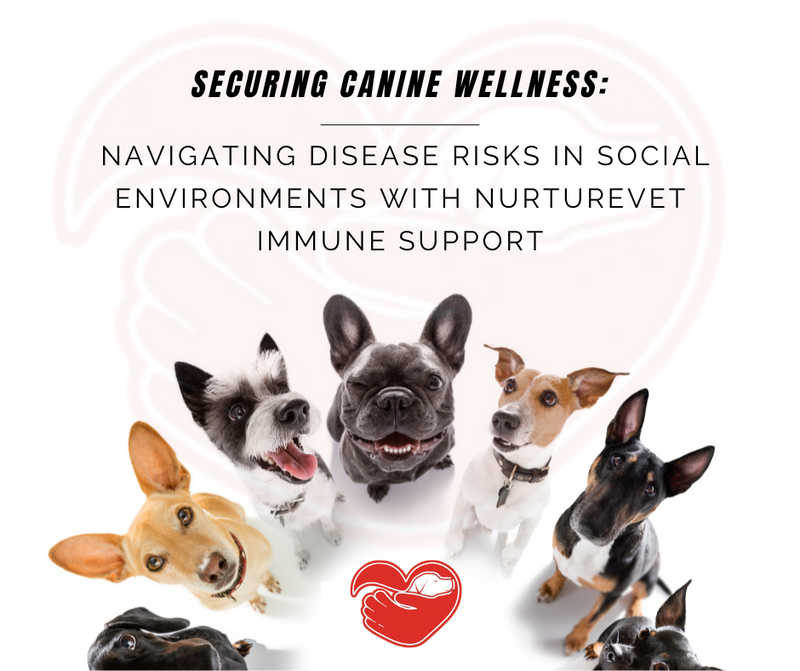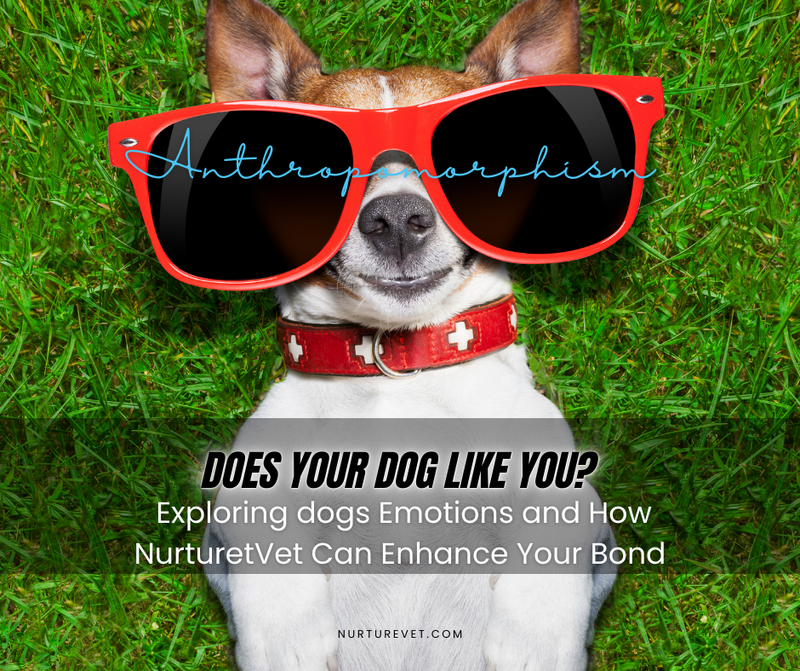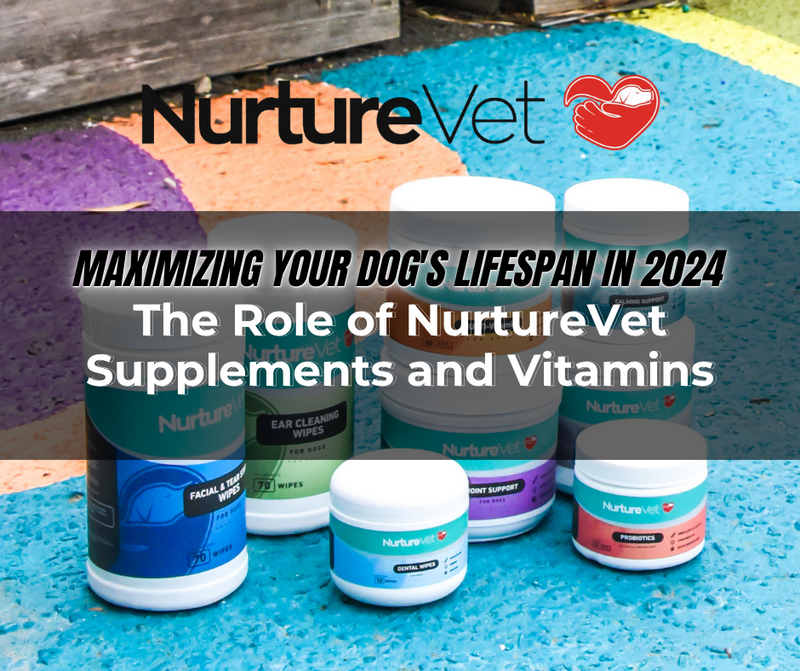
It is hard for our furry companions to eat a well-rounded diet that offers all the nutrients and vitamins they need. Many home-made and commercial dog foods do not offer a complete range of vitamins and minerals. This results in missing out on the key vitamins that your dog needs to be healthy.
Just like humans, dogs also need vitamins to maintain their health and well-being. In this article, you will get to know about
Benefits of Vitamins for Dogs
Do our dogs actually need vitamins? The answer is yes, they need vitamins along with other nutrients to thrive. Each individual vitamin plays a significant role in your dog's body. They can contribute to your furry pal's well being in several ways.
A nutrient-rich diet, containing vitamins and minerals, ensures that your dogs are less likely to suffer from health issues. Here are some of the benefits of vitamins for your dogs:
- They help to build a robust immune system. A strong immune system reduces your dog's risk of heart disease, inflammation, cancers, osteoarthritis, and diabetes. Vitamins along with other essential nutrients will increase your dog's ability to fight illness throughout their life.
- They promote healthy liver and kidney function.
- They help to improve vision.
- Vitamins increase your dog's mobility, muscle strength, and endurance.
- They maintain healthy skin and a shiny coat. Skin problems include bacterial and fungal infections, itchy skin, excessive shedding, hotspots, and allergies.
- Vitamins minimize urinary tract problems and prevent the onset or spread of the problem.
- Promote gut health and efficient digestion.
- Vitamins protect your dog's cells against oxidation.
- They improve your dog's cognitive development. A diet rich in vitamins and antioxidants can prevent cognitive dysfunction syndrome (CDS) in growing dogs.
Important Vitamins for Dogs

Let's have a look at the important vitamins for dogs:
- Vitamin A: This vitamin is important for your dog's good vision, growth, immune function, and fetal development.
- B Vitamins: These vitamins play an important role in your dog's health. B vitamins include:
- Thiamine: Helps regulate energy and carbohydrate metabolism.
- Riboflavin, B12, and niacin: Helps facilitate enzyme function.
- Vitamin B6: Responsible for glucose generation, nervous system function, hormone regulation, immune-boosting, niacin synthesis, and gene activation.
- Pantothenic: Helps with energy metabolism.
- Folic acid: Helps to regulate amino acid and nucleotide metabolism and in mitochondrial protein synthesis.
- Vitamin C: This is a vital antioxidant for your dog. It reduces inflammation and harmful free radicals from your dog's body. Dogs' bodies can even synthesize vitamin C on their own in their livers.
- Vitamin D: This vitamin is important to maintain healthy muscles and bones. Vitamin D allows your dog's body to balance minerals like phosphorus and calcium for healthy bone growth.
- Vitamin E: This vitamin is essential for cell function and fat metabolism. It protects your dogs from eye and muscle degeneration and reproductive problems.
- Vitamin K: This vitamin improves your dog's blood’s ability to clot.
-
Choline: This vitamin supports the healthy brain and liver function of your dog.
Which Dogs Require Vitamin Supplements?
Just like us, our dogs need vitamins too. They need them in different amounts than we do. Here are some conditions where your dog needs vitamin supplements:
- Your furry pal is diagnosed with a vitamin deficiency.
- Your dog is suffering from a disease that can be treated with a vitamin supplement.
- You prepare and cook your dog's food at home and can't exactly tell how much vitamins your dog is getting from his diet.
- Dogs on low-quality commercial food. They usually are not enriched with essential vitamins and minerals.
- If you are feeding less because your dog is overweight. Vitamin supplements can maintain energy levels without adding calories.
- Senior dogs need vitamin supplement for their compromised digestive system and brain health.
- Young dogs with a rapid growth rate require vitamin supplements. It will ensure that their growing needs are fully maintained.
- Dogs who are suffering from arthritis or joint problems.
- Dogs who have recently recovered from an illness or surgery.
- A sick dog who has reduced appetite a itnd digestive discomfort from their medication.
Vitamin supplement ensures nutrient supply to maintain recovery and return to normal condition.
How to choose the right vitamins for your dog

With so many vitamin supplements available on the market, it can be difficult to choose the right one for your dog. Here are some tips on how to choose the right vitamins for your dog.
- Look for high-quality vitami supplements. Not all vitamin supplements are created equal. Look for high-quality supplements that are made by reputable companies. We recommend NurtureVet Multi-Vitamins for Dogs.
- Different dog breeds and ages have different nutritional requirements. Choose vitamins that are appropriate for your dog's age and breed.
- If your dog has a specific health concern, such as joint problems or skin issues, consider choosing a vitamin supplement that addresses that concern. For example, a supplement that contains glucosamine and chondroitin can help to support joint health, while a supplement that contains omega-3 fatty acids can help to improve skin and coat health. Try NurtureVet Dog Hip and Joint Supplement to keep your dog's joints healthy and functioning.
- Always follow the recommended dosage when giving your dog vitamin supplements. Giving your dog too much of a particular vitamin can be harmful to their health. Always read the label carefully and follow the instructions.
Before giving your dog any vitamin supplements, it is important to consult with your vet. They can recommend a specific vitamin supplement that is tailored to your dog's specific needs. They can also advise you on the correct dosage and potential side effects.
Final Thoughts
Complete nutrition is essential for your dog's overall well being and vitality. Choosing the right vitamins for your dog can be overwhelming, but it is important for maintaining their health and wellbeing.
As a responsible dog owner, you must ensure that your dog gets the right balance of vitamins in their diet. This will help them live a long, happy, and healthy life.





0 comments